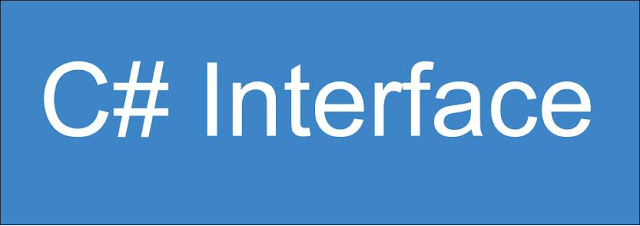Interface: An interface contains definitions for a group of related functionalities that a non-abstract class or a struct must implement.
Interfaces can contain instance methods, properties, events, indexers, or any combination of those four member types. Interfaces may contain static constructors, fields, constants, or operators.
Benefits: Interface helps us to implement all of Object Oriented Programming concepts. There are several benefits of using interfaces in .NET, including:
1. Loose Coupling: Interface allows us developing very loosely coupled system. An interface defines a contract that a class must follow. By using an interface, you can ensure that the class implementing it adheres to a specific set of rules and functionality.
2. Abstraction: Interface helps us developing secured system by implementing abstraction. It is a contract that contains properties and method signatures and implementation is done in inherited class. Thus it helps hiding implementation of internal business logic from external systems.
3. Inheritance: Interface in C# helps to achieve multiple inheritance. C# does not allow multiple class inheritance, but a class can implement multiple interfaces. This allows you to create objects with functionality from multiple sources, without the complications that can arise from multiple inheritance.
4. Polymorphism: Interfaces allow us to define polymorphism in a declarative way, unrelated to implementation. Two elements are polymorphic with respect to a set of behaviors if they realize the same interfaces.
5. Plug and Play: Interfaces are the key to the "plug-and-play" ability of an architecture.
6. Testing: Interfaces enable mocking objects which makes easier and better unit testing.
7. Dependency Injection: Interfaces are great for implementing Inversion of Control or Dependency Injection.
8. Extensibility: We can satisfy extensibility using the interfaces in C#.
9. Parallel Programming: Interfaces enable parallel application development.
10. Code Re usability: An interface can be implemented in multiple classes that enables greater code reuse. This can reduce the amount of code you need to write, and make it easier to modify or update existing code.
In conclusion we can say that using interfaces can help to create more modular, maintainable, and reusable code, while also enabling polymorphism and simplifying testing.
* Beginning with C# 8.0, an interface may define a default implementation for members.


